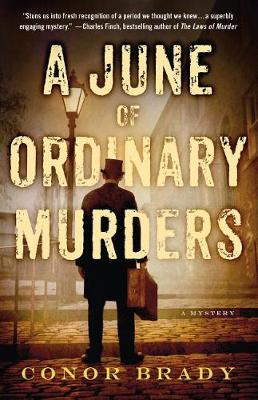
wyvernfriend
Written on Jan 9, 2013
This book has a number of interesting characters and the most interesting of which is the city it's set in, you can see them travelling through the streets of Dublin, only slightly different from today. One of the big tensions is between Irish-born and English and between Protestant and Catholic. Some of the stresses that would later become rebellion can be seen. You could also see the issues of a heatwave in a city like Dublin.
The story is set in 1887, in June. The book follows the days of the investigation of a man and child in Phoenix Park, Detective Sergeant Joe Swallow is the investigator and as he investigates things it gets murkier as he goes. Swallow has to deal with his own demons as well as political interference, some of which make it hard for him to deal. Alongside this there's a gangland war brewing due to the death of their leader Ces "Pisspot" Downes, a notorious woman with an iron hand on her followers. Just to complicate matters it's also the time of the Queen's Jubilee and Swallow's teacher student sister is caught up in some of the nationalist politics fermenting at the same time.
The author does telegraph some of the clues in the story so that I was waiting when some of the revels of what I intuited about the story to be put on the page. Then again I've read far too many mysteries and often find it's the journey not the reveal that can be the most interesting part of the story. I know Conor Brady is a former journalist and I look forward to him becoming a more practiced fiction writer, there were times when his research was thrown at the page without enough reason for the plot, though it did make me want to research more of that period in Dublin.
The story does wrap itself up nicely, giving space for future volumes with interesting enough characters set up for the future. It reads a bit like a cross between the Murdoch Mysteries and Victorian London-based crime, though Swallow is no Sherlock Holmes, even with his demons, and medical examiner friend Harry Lafeyre.
And the Ordinary murders? Political crimes were "special" everything else was "ordinary"
